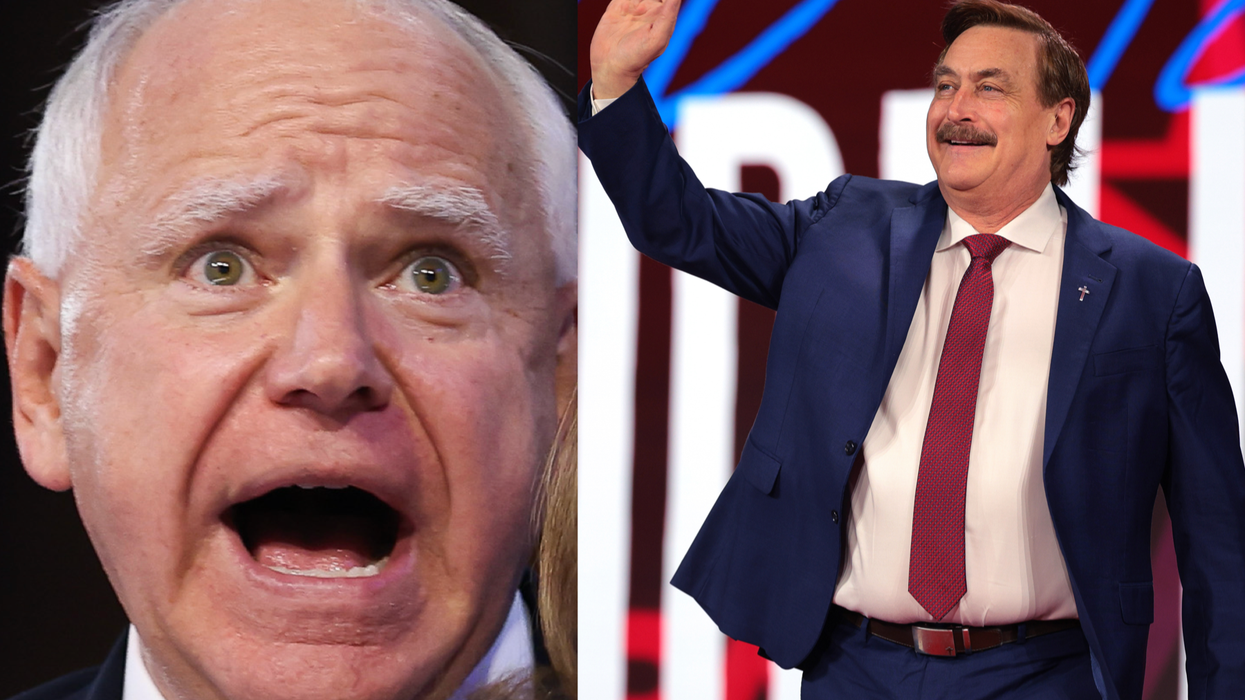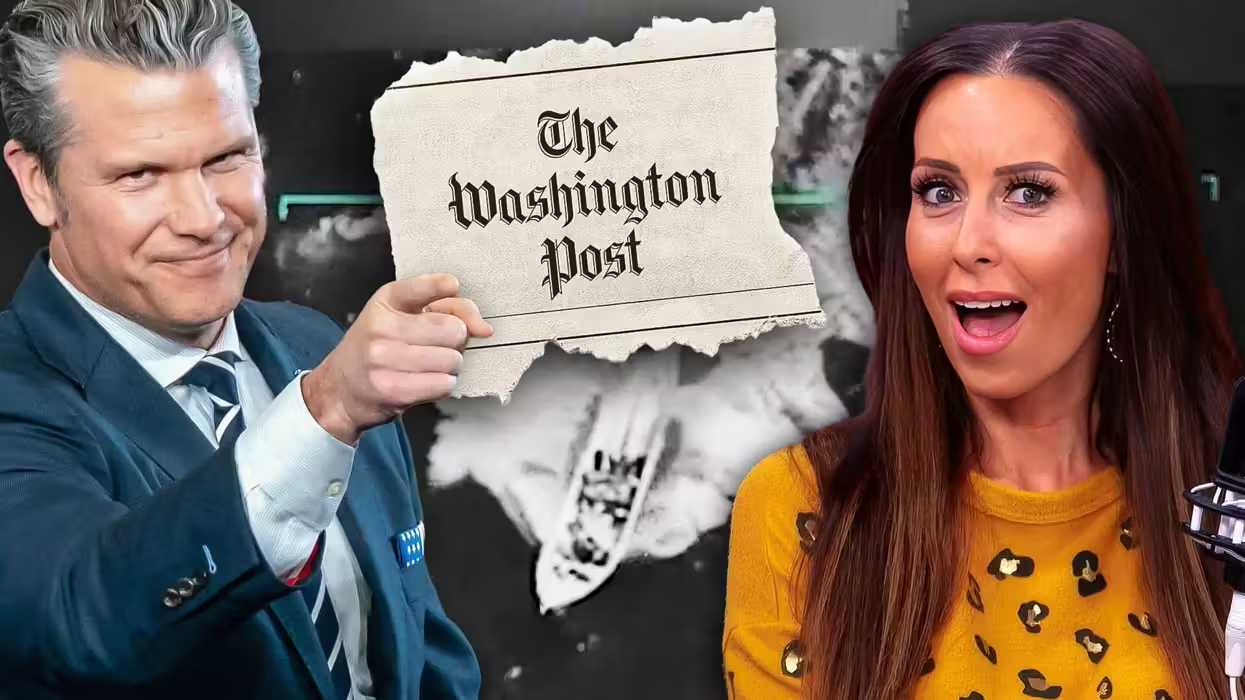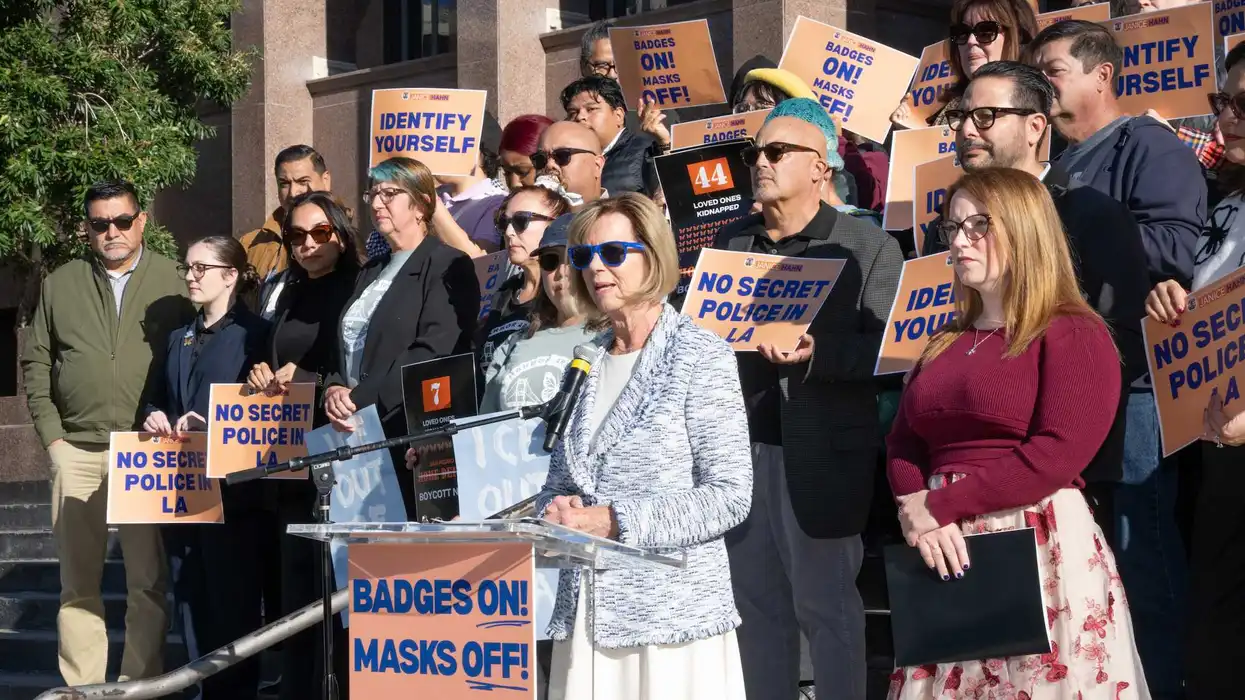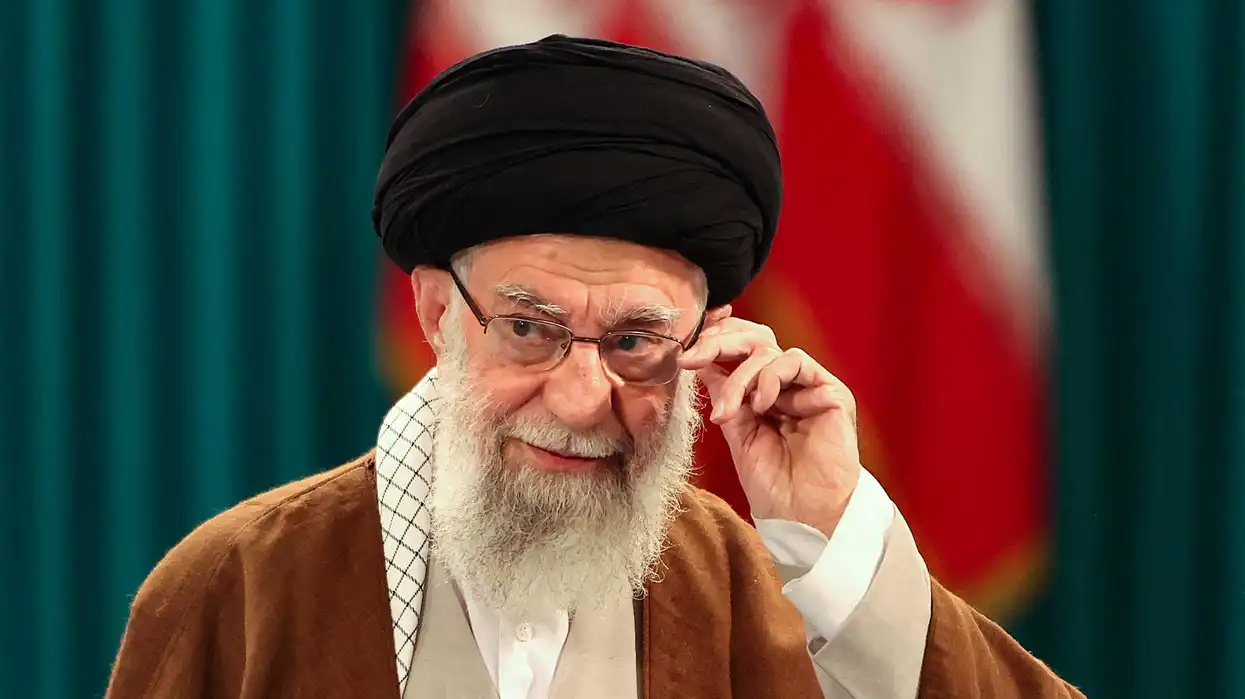
© 2025 Blaze Media LLC. All rights reserved.
Bachmann‘s ’Money Blurts’ Inspire Small Donors to Dole Out Campaign Cash
June 24, 2011
"Whatever the maximum is, she'll get from me."
 ST. PAUL, Minn. (The Blaze/AP) — New York retiree Phyllis Hornung has never been to Minnesota and has no ties to the state — other than the steady stream of campaign donations she sends to Michele Bachmann.
ST. PAUL, Minn. (The Blaze/AP) — New York retiree Phyllis Hornung has never been to Minnesota and has no ties to the state — other than the steady stream of campaign donations she sends to Michele Bachmann.
Almost every other month last year, Hornung sent the conservative Republican congresswoman a check for $25, or sometimes $75.
"She captured my heart immediately," said Hornung, a former commercial real estate broker who recalls first seeing Bachmann two years ago on television — an appearance that prompted her to make a small contribution online. "There was no question in my mind that she was a straight talker and I should support her."
The $350 that Hornung has donated is a tiny fraction of the $13.5 million Bachmann hauled in for her 2010 race — more than any other candidate for Congress. But donors such as Hornung are the main supply line for a fundraising machine that is humming as Bachmann begins her campaign for the Republican presidential nomination. Below, watch the money-bomb video she released back in May:
A new Associated Press-GfK poll showed positive views of Bachmann climbing among Republicans. In May, 41 percent of Republicans held a favorable view of the Minnesota congresswoman. That percentage rose to 54 percent in the new survey. Among supporters of the tea party movement, her favorability climbed from 48 percent to 57 percent.
Bachmann isn't the only candidate for president who makes political money rain. President Barack Obama set records four years after President George W. Bush set records, and some predict the Democratic incumbent will be the first presidential candidate to raise $1 billion.
But Bush and Obama depended more on thunderstorms of money — bundles of checks collected by big-money donors, each written for the maximum amount allowed by law. Bachmann's accounts are instead filled with small contributions sent by devoted supporters. Many small donors meet her through television or Internet clips, and she stays connected with them through a well-honed system of phone calls, emails and letters.
Each gets a personalized "Team Bachmann" membership card. The most recent bears her picture and a motto: "Fighting for common sense and fiscal sanity in Washington."
Of the nearly $12.9 million Bachmann raised from individuals in the last election, more than half came from people giving less than $200. While Obama was cheered for the legion of small donors who contributed to his campaign, only about a fourth of Obama's $750 million take in 2008 came from such donors, according to a Campaign Finance Institute analysis. Bush also raised roughly a quarter of his campaign funds in 2004 from such small donors. According to TIME's Swampland:
Of the $1.7 million she reported raising last quarter, only $1,500 came from non-individuals, and the average donation was just $619.34. But Bachmann didn’t always eschew Political Action Committee money. The Minnesota Congresswoman has upped her individual contributions from a little more than half of her total funds, to nearly 100%, as seen in the illustration below.

Former Massachusetts Gov. Mitt Romney, seen as the early leader on the GOP side, gathered about 80 percent of his campaign cash during his 2008 presidential bid from donors who gave $1,000 or more. (Romney has yet to file a campaign report for his 2012 bid, the first of which is due July 15.)
Bachmann needs the steady stream of money so that she can keep raising it.
Cultivating a base of small givers is expensive because it requires asking more people for money and making more frequent contacts with those contributors. The campaign sifts lists of public and consumer data — examining things like age, home value, voting history, other donations and club memberships — in search of potential donors who might share Bachmann's views.
The more it costs to raise money, the less there is to spend on actual campaign activity like travel, advertising and get-out-the-vote efforts. It's easier to hold down costs by soliciting major donors, those who reliably give at or near the maximum in every election cycle.
In the 2010 race, Bachmann only had about 400 people who gave the $2,400 limit. Campaign reports analyzed by The Associated Press show that $5.6 million — about half of Bachmann's overall expenses during that campaign — was plowed back into fundraising. It went to fundraising consultants, credit card processing fees, telemarketing and mail solicitations, among other costs.
But there are also advantages to Bachmann's fundraising strategy. Fundraising consultants say that while making the first hit involves trial and error, there is a payoff when donors come through again and again. Jonathan Mantz, who was national finance director for Democrat Hillary Rodham Clinton's 2008 campaign, said the number of donors is as important to watch as a campaign's overall take.
"If you have a bunch of max-outs, at the end of the day they can't contribute anymore," Mantz said. Drawing in more low-dollar givers is "almost like a subscription program, where they are able to give because ideally they have room in their budget and you can take advantage of key moments."
Bachmann had almost $2.9 million in her congressional campaign fund through March that she's allowed to transfer to her presidential bid. She came out of the gate last week with a barrage of fundraising pleas, saying in one, "In these first few days of my campaign it is imperative that I have the funds necessary to reach out to conservatives in every corner of the United States."
According to some sources, it is these bold statements that bring in cash for Bachmann. The Washington Post dubbs her provocative statements as "money blurts," writing:
Bachmann...has made a specialty of raising money in the wake of bold and well-placed remarks. Shortly after accusing President Obama of having “anti-American views” during one cable-news appearance, for example, Bachmann took in nearly $1 million.The use of money blurts could have a significant impact on the strength of some candidates’ fundraising efforts...
In one letter to donors in May, she bemoans a federal deficit pegged at "a record-shattering $1.65 TRILLION!" and says she needs campaign money to combat forces trying to target her politically. Others are saturated with vivid language about values being "under assault like never before" and the nation trending toward "socialist policies."
Thousands of the Bachmann donors are described in her campaign reports as retired. Many others say they are self-employed or own businesses. Some contacted by the AP said they've previously given to Texas Rep. Ron Paul, Florida Rep. Allen West and unsuccessful Nevada Senate candidate Sharron Angle — all of whom are, as is Bachmann, revered by the tea party.
"I can tell generally who the good people are by how much the press hates them," said retired Louisiana electrical engineer David Kimball, who gave money to the others and just under $500 to Bachmann in 2010 in near-weekly donations that began in the summer. "My impression of her is she's telling the truth. She's patriotic. I don't think there's any guile about her."
Hornung, the retired Bachmann donor from New York, says she's rooting for a Bachmann presidential campaign even amid doubts about her actually winning. Those doubts, she said, aren't enough to stop her from writing Bachmann checks.
"If need be, I'll be a great deal more supportive than what I've been so far," Hornung said. "Whatever the maximum is, she'll get from me."
Want to leave a tip?
We answer to you. Help keep our content free of advertisers and big tech censorship by leaving a tip today.
Want to join the conversation?
Already a subscriber?
Billy Hallowell is a digital TV host and interviewer for Faithwire and CBN News and the co-host of CBN’s "Quick Start Podcast."
Billy Hallowell
Billy Hallowell is a digital TV host and interviewer for Faithwire and CBN News and the co-host of CBN’s "Quick Start Podcast."
more stories
Sign up for the Blaze newsletter
By signing up, you agree to our Privacy Policy and Terms of Use, and agree to receive content that may sometimes include advertisements. You may opt out at any time.
Related Content
© 2025 Blaze Media LLC. All rights reserved.
Get the stories that matter most delivered directly to your inbox.
By signing up, you agree to our Privacy Policy and Terms of Use, and agree to receive content that may sometimes include advertisements. You may opt out at any time.






